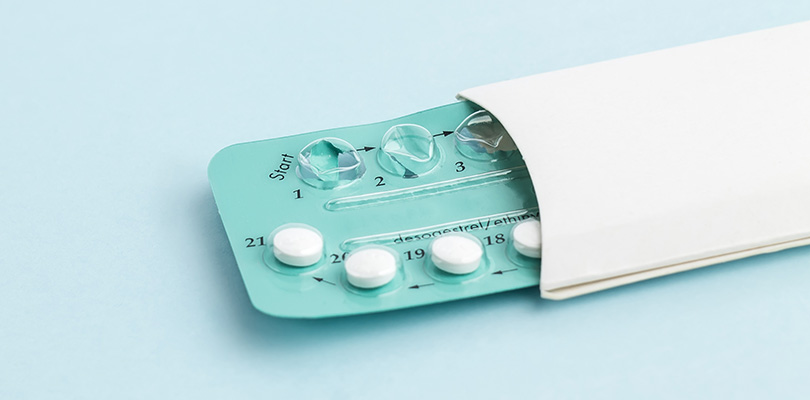Menopause and Memory
Memory loss starts out innocently enough, your brain blanks on a word or a name, or you forget where you put your phone. Forgetfulness is something most of us have experienced, and even though it can be a concerning symptom, we laugh it off.
As we age, our ability to recall information slows down a little bit, but for women, menopause may make it just a little bit more difficult. With all of the other symptoms of menopause, memory lapse is another one to add to the list.
Can Menopause Cause Memory Problems?
Memory problems, difficulty concentrating, and the ability to recall events, names, and bits of information start to occur in perimenopause and continues throughout post-menopause.
Perimenopause usually starts in the mid-forties; it’s the time where certain hormone levels begin to change and recalibrate in a woman’s body before her final cessation of periods.
The redistribution of hormones, especially estrogen, causes a minor glitch in a woman’s ability to recall information on demand. This menopausal forgetfulness only affects short-term or recent memory; it does not affect long-term.
These kinds of memory lapses are minor blips in recollection, and once hormone levels settle after post-menopause, the issue of forgetfulness should go away.
Menopause and Memory Loss Symptoms
With menopause-related memory loss, you may be stumped to recall something specific in the moment. Your brain may just feel lazy and foggy, and it’s not something that can be cured with a strong cup of coffee.
Concentration can be an issue, you may try with great effort to focus, but your brain seems like an unwilling participant in retaining information. Recent events may be forgotten at one time but recalled at a later time.
These moments of inability to recollect can be met with frustration with yourself, but don’t be disheartened.
What Causes Brain Fog During Menopause?
Hormonal imbalance is a key suspect in what can be to blame for the memory lapse. The ovaries produce estrogen. As the estrogen levels change, it has an impact on the brain.
Estrogen helps orchestrate increased blood flow to the brain, and in doing so, increases production levels of a neurotransmitter that prompts memory, contributes to language skills, ability to pay attention and retain new information, regulate mood and emotions, concentration and other brain processes.
Menopause weight gain is typically caused by slowing of the metabolism, genetic factors, drops in estrogen levels, and other aging factors.
The reason it may be difficult to recall specific words is that estrogen is linked to verbal word fluency and the ability to summon the words at will. The fact seems pretty clear: less estrogen lowers the ability for recollection.
Another theory of memory issues during menopause is sleep deprivation or lack of quality sleep. Hot flashes may interrupt your slumber, leaving you cognitively groggy the next day.
There are additional risk factors that are also reasons your concentration and recall aren’t meeting their potential: poor diet, vitamin deficiencies, increased stress, certain medications, alcohol consumption, and burnout from overwork may also contribute to the slowed reaction of your cognitive abilities.
How to Improve Memory During Menopause
There are some things you can do to try and treat memory lapses associated with menopause. Small things like tweaking your diet to balance it out with healthy foods and adding omega-3 fatty acids help aid concentration.
Incorporate more fresh produce into your diet and be sure to add antioxidant-rich foods, like blueberries, to promote mental function. Make sure you’re taking the right vitamins (vitamins B, C, D and E are good for cognition).
Be mindful and make an effort to move your body – staying active and spending time outside can both benefit your mental processes.
Workout your mental muscles learning something new, or with brain teasers and puzzles to keep your mind sharp and strengthen your recall ability and improve your memory.
Make sleep a priority and make sure you’re getting a proper amount each night. Sleep deprivation only increases the feeling of a fuzzy feeling brain.
There are also other options available, such as natural supplements for decreased estrogen levels, or pharmaceutical options if a consultation with your physician indicates this is a viable and safe option for you.
Other Sources of Memory Loss
Menopause makes you second guess your body and may blur the line between a symptom of menopause and a symptom of another disorder. Memory lapse may also be indicative of Alzheimer’s disease, stroke, head trauma, attention deficit disorder, dementia, or even cancer.
If you are concerned that your memory loss is more than just a menopausal memory blip, schedule an appointment with your physician to address your concerns.
Menopausal memory lapses are not permanent. Like other menopause symptoms, this inability to recall information should not last once your body rebalances from its shift in hormone levels.
The next time you’re in a situation where you can’t remember where you put down your coffee mug, take it in stride. You’ll remember eventually







